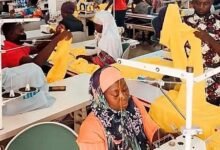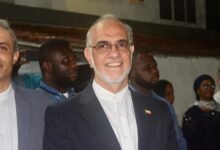Energy Ministry advocates national clean cooking policy

The Ministry of Energy and Green Transition has proposed the formulation of a National Clean Cooking Policy to address Ghana’s clean cooking challenges.
This policy according the Ministry would streamline and coordinate efforts and ensure effective and structured approach towards clean cooking adoption.
Speaking at a clean cooking workshop in Accra last Wednesday, the Minister of Energy and Green Transition, John Abdulai Jinapor, said the policy would provide a structured framework to guide efforts in promoting clean cooking.
He explained that it would support a mix of clean energy options, including LPG, electricity, biogas, and improved biomass stoves, adding that the policy would also establish regulations, encourage local participation, raise public awareness, and introduce monitoring and evaluation systems.
Mr Jinapor noted that Ghana faced a major energy challenge, with about 18 million people lack access to clean cooking.
This, he stated, has serious health, environmental, and economic consequences.
“Between 2021 and 2022, the sharp rise in LPG prices, over 80 per cent led to a 12 per cent decline in consumption, forcing many households to revert to wood fuel, which increases deforestation and health risks,” he explained.
Mr Jinapor also indicated that the government was working to expand access to clean cooking, with a vision to ensure that by 2030, at least 50 per cent of the population, especially in rural areas will use clean cooking solutions.
“Currently, about 56 per cent of urban dwellers use clean cooking, compared to just 12–16 per cent in rural areas. The government aims to bridge this gap by promoting LPG consumption and improving infrastructure,” he elaborated.
To reduce dependence on imported LPG, the minister revealed that Ghana Gas supplied about 30 per cent of the country’s LPG needs.
Further, he announced that Cabinet had approved the construction of a second gas processing plant, which, when completed, would increase domestic supply to 70 to 80 per cent and eventually 100 per cent.
Mr Jinapor also emphasised the importance of local production, stating that the government intended to retool the Ghana Cylinder Manufacturing Company to produce and refurbish cylinders locally.
The Chief Director of the Ministry of Energy, Madam Wilhelmina Asamoah, noted that the workshop would help ensure inclusivity and gather “region-specific insights” to develop a clean cooking roadmap that reflects local realities while aligning with national and global energy transition goals.
She noted that traditional cooking methods continued to pose health risks, contribute to deforestation, and impact climate change.
The Senior Energy Expert at the World Bank, Maame Tabuah Ankoh, also added that the institution has been supporting cooking energy solutions through initiatives like the Carbon Initiative for Development Programme and the Energy Sector Management Assistance Programme.
She mentioned that the support has included technical assistance and financing of investment programmes.
The Acting Executive Secretary of the Energy Commission, Madam Eunice Biritwum, highlighted the Commission’s collaboration with the Ministry.
BY AGNES OPOKU SARPONG





